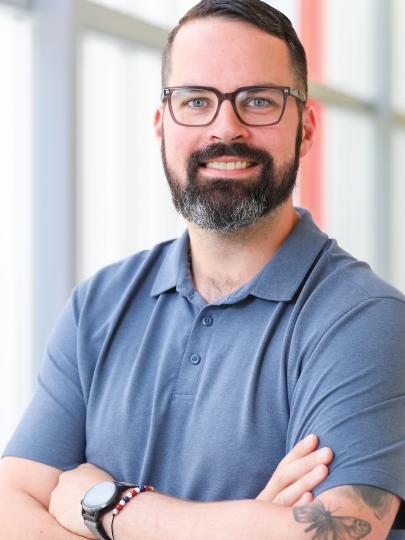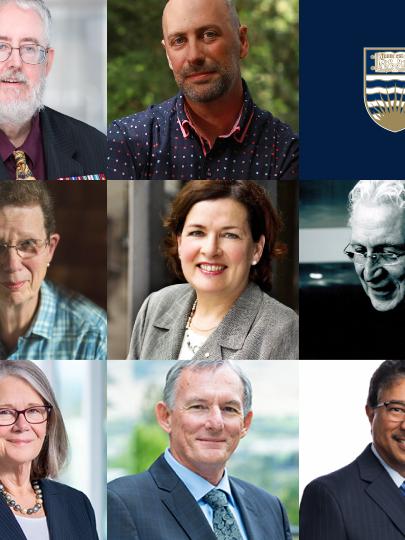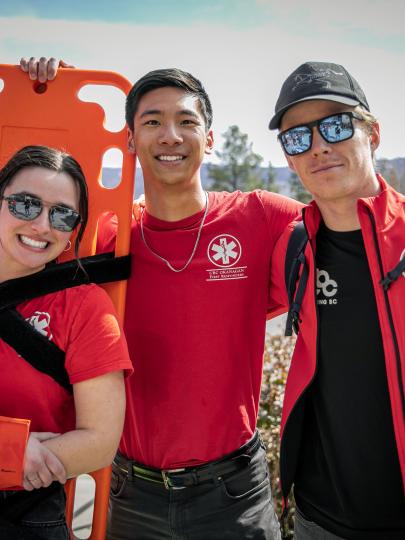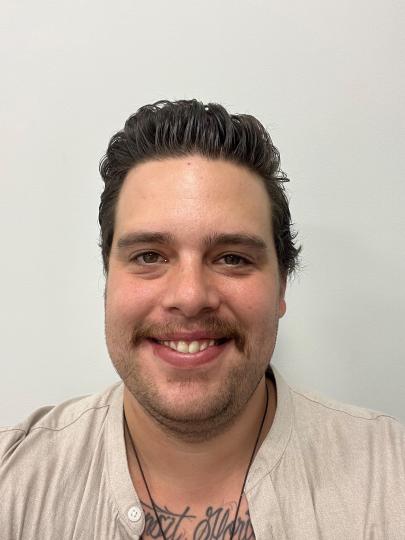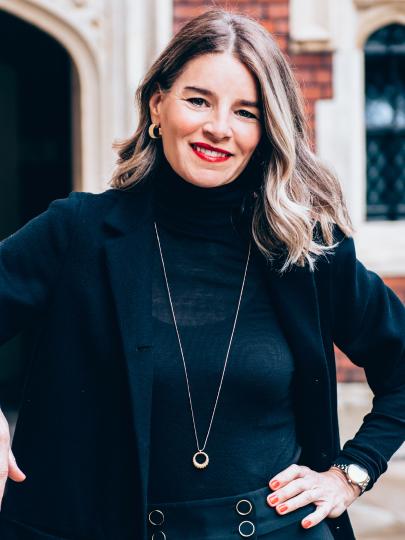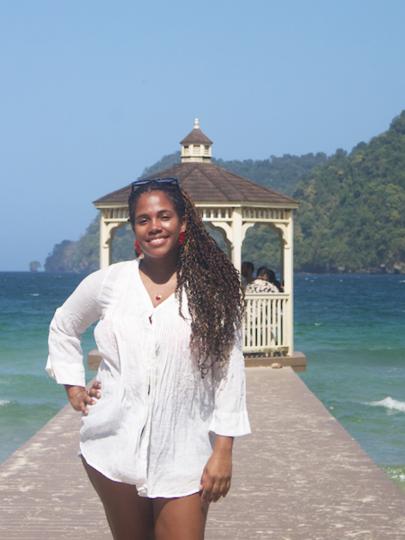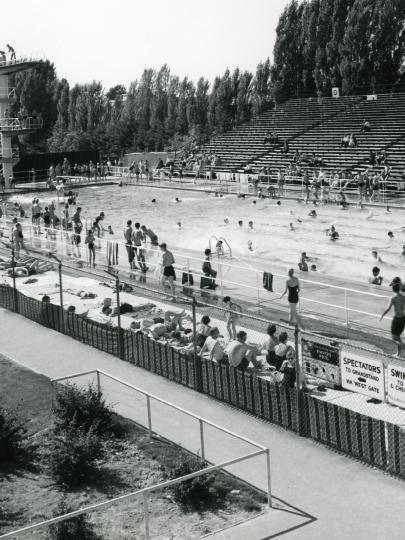2016 alumni UBC Achievement Awards Recipients
Alumni Award of Distinction
Dr. Philip Lind, CM, BA’66, LLD’02
Global Citizenship Award
Dr. Tara Cullis, BA’70
Faculty Community Service Award
Dr. C. James Frankish, BA’82, MA’86, PhD’90
Honorary Alumnus
Dr. Herbert Rosengarten
Volunteer Leadership Award
Dr. Donald (BSc’68, MD’70) and Elizabeth (BSR’70) MacRitchie
Young Alumnus Award
Dr. Jessica Otte, MD’09
Future Alumnus Award
Christopher Roach, BSc’10

Tuesday, November 1, 2016 at 6:00 pm
Robert H. Lee Alumni Centre – Jack Poole Hall
UBC’s Vancouver campus
Alumni Award of Distinction
Dr. Philip Lind, CM, BA’66, LLD’02
Phil Lind is one of Canada's most respected communications and media industry leaders, whose strategic advice and generous support have been vital to many UBC endeavours.
He joined Rogers Communications Inc. in 1969 as programming chief and ultimately became vice chairman, helping to grow the company into one of this country’s preeminent cable companies and its largest wireless company, with over 10 million customers. He relinquished his executive duties in 2014, but maintains an active board role.
One of Dr. Lind's career highlights was leading Rogers' expansion in the US during the 1980s, negotiating acquisition deals that were ultimately worth $1.4 billion. He is the only Canadian to have been elected to the board of the National Cable Television Association in the US, and in 2012 became only the third Canadian to be inducted into the US Cable Hall of Fame in Denver.
As chairman of Rogers' cable interests in the US for many years, Dr. Lind realized there was a dearth of learning opportunities in Canada to examine the politics of a country with which we share a border and close business relationships. He believed that bridging this gap would increase the likelihood of success for Canadian companies operating in the US. In the late 1990s, Dr. Lind reconnected with UBC’s Faculty of Arts by establishing the Phil Lind Chair in US Politics and Representation, the first of its kind in Canada, to focus on the US policy process. His most recent gift of $3 million supports the Lind Initiative, which brings prestigious American scholars to campus as an inspiration for UBC students. The first scholar was Dr. Joseph Stiglitz, a famed US economist and recipient of the 2001 Nobel Memorial Prize in Economic Sciences.
Dr. Lind received an honorary degree from UBC in 2002 for his substantial contribution to the diversity of Canadian culture and his generous support of liberal arts education through broadcasting and technology. He has served on the Dean's Advisory Board since 2003 and has also been particularly supportive of the faculty's Film Program and the Belkin Art Gallery. He was instrumental in securing a $1.3 million gift for the Rogers Multicultural Film Production Project, which allows young filmmakers to explore cultural issues and contribute to a diversity of voices in film.
Dr. Lind is a strong proponent of multicultural programming in Canada, promoting and supporting it through such brands as Omni-TV. He also chairs CPAC, the Canadian Public Affairs Channel that he established in 1992, and lends his time and support to several arts- and environment-focused organizations, including the Vancouver Art Gallery and the Art Gallery of Ontario.
Recently, Dr. Lind provided invaluable strategic advice to UBC as co-chair of UBC’s remarkably successful start an evolution campaign, which concluded in 2015 having raised over $1.6 billion and engaged more than 130,000 alumni across the globe. Over the same period he helped UBC expand its base in Toronto, as founder and Chair of the university's Toronto Leadership Circle.
During his long and distinguished career, Dr. Lind has received many honours, including being appointed to the Order of Canada in 2002.
Global Citizenship Award
Dr. Tara Cullis, BA’70
Tara Cullis has dedicated her life to environmental causes. Her highly effective activism has ranged from greening her children’s school yard to helping indigenous peoples protect their lands from clearcut logging and large-scale dams.
By necessity, she has become a skilled fundraiser, organizer, convenor, speaker, strategist and, above all, diplomat. Her activism is remarkable for the amount of publicity and support she has been able to generate. Tactics have included enlisting the support of well-known and influential people – including Gordon Lightfoot, Margaret Atwood, Raffi, Buffy St. Marie, Bruce Cockburn, John Denver, and David Suzuki, her husband.
She has been the driving force behind the David Suzuki Foundation and is credited with most of the work involved in setting it up in 1990 as a science-based and solutions-focused organization, and evolving it into a relationship-building vehicle for change.
Dr. Cullis has long been at the forefront of successful efforts to prevent the destruction of rainforest and has been a key player in environmental movements in the Amazon, Southeast Asia, and British Columbia, working closely with indigenous peoples in those regions to orchestrate high-profile protests and publicity tours.
During the 1980s she helped protect BC’s Stein Valley, which in 1995 became a heritage park, and she also worked on South Moresby (later known as Gwaii Haanas), which became a National Park Reserve in 1987. In 1988 and 89, she played a major role in the Amazon in preventing the building of the Kararao Dam at Altamira, Brazil.
Her environmental work has been characterized by a great respect for First Nations people – acknowledging the economic needs of their communities and their claim to the land, as well as the importance of sustaining the forests indefinitely. In the late 90s, when other environmental groups were calling for a moratorium on all logging in what became the Great Bear Rainforest, the DSF instead recognized First Nations’ inherent right to the territory.
Dr. Cullis saw that their small, remote communities could unite into a powerful front. She set up a DSF office in Prince Rupert and visited coastal communities many times. Eventually the leaders convened at a series of meetings she organized called Turning Point and created the Coastal First Nations organization, declaring their “responsibility to protect… our lands, water and air,” negotiating land use plans directly with governments, and integrating modern and sustainable forest and marine management strategies. An accomplished writer, she is currently working on the biography of the late coastal chief Johnny Clifton of Hartley Bay.
Dr. Cullis is held in high esteem by BC’s First Nations communities, environmentalists, people she has helped around the world, and above all her own family, who realize better than anyone what a measurable difference she has made.
Faculty Community Service Award
Dr. C. James Frankish, BA’82, MA’86, PhD’90
A professor in UBC’s School of Public & Population Health, James Frankish leads efforts to gain a better understanding of homelessness and the factors behind the complex health and social conditions that so often accompany it. His approach is community-based and fully collaborative, and he regards homeless people as equal partners in the research.
Dr. Frankish works with colleagues from dozens of other disciplines and builds relationships at all layers of society to identify and evaluate innovative programs, with a view to establishing a collective understanding of best practices and distributing that knowledge to those on the ground delivering the care. In 2002 he created an online database on homelessness, providing free access to healthcare providers and government bodies tasked with setting policy addressing or affecting homelessness.
He is the initiator of some innovative programs himself, one of which involved training street-involved youth as peer health educators. At UBC, he established the Partnerships in Community Health Research program, which brought community learners to the university. This approach allows for the exploration of diverse perspectives, cross-cultural learning, and addressing of power imbalance, and is the epitome of participatory, community-based research in action.
In 2013 Dr. Frankish received the BC Health Association Legacy Award for a major study he co-led to assess different models of supportive housing for people living with mental illness and addiction. He has examined many contributing factors to disparity, including the 2010 Olympics in Vancouver, which he investigated from a perspective of inclusion and displacement. Dr. Frankish is a mentor to many students and alumni and has developed more than 40 courses at UBC, one of them featuring a community-service learning component. His course on community-based health research and promotion is available online and taken advantage of by many professionals in the field.
He is a long-standing board member of the Lookout Emergency Aid Society, which provides housing and support to vulnerable community members with low or no income – and has also served the Provost Advisory Group on Downtown Eastside, the Vancouver Street-to-Home Foundation, the Vancouver Homeless Count, and the Vancouver Crisis Centre. In 2013, Vancouver Mayor Gregor Robinson invited him to participate on the Mayor’s Task Force on Mental Health and Addictions.
At the national level, Dr. Frankish’s advice has been sought from many organizations including the National Collaborating Centre on Determinants of Health, the Canadian Consortium for Health Promotion Research, and the Canadian Association for Suicide Prevention. In 2014, he received the Ron Draper Award from Canadian Public Health Association, and in 2015 the Community Achievement Award from the BC Community Achievement Foundation.
Known for his humour, kindness, and compassion, he runs a children’s book collection program for distribution to inner-city schools and remote First Nations communities that has distributed in excess of 7,000 books. He’s also known to visit hospitalized patients and people in shelters with his registered therapy dog, Lola.
Honorary Alumnus
Dr. Herbert Rosengarten
Few people know UBC as well as Herbert Rosengarten does. During his 50-year career here, he has influenced the university’s course through his academic leadership, senior administration, and advocacy for community outreach and engagement. More recently he has taken on the task of documenting UBC’s past -- a history he has played no small part in shaping.
Educated at Oxford and Cambridge, Dr. Rosengarten joined UBC’s English Department in 1965 as an instructor. His area of specialty is Victorian British fiction, in particular the works of the Brontë sisters. By 1987 he was head of the department, and remained in the post for 10 years. During this time, he embraced technology as an aid to learning and research, overseeing the opening of a computer lab for grad students, though never giving up his firm belief in the primacy of the printed book.
He later took on responsibility for a variety of far-reaching elements of university policy and decision-making, some of this a result of his elected membership to the UBC Senate, where he dealt with a host of university matters ranging from emergency planning to library services.
As executive director of the office of the president during the tenures of Martha Piper, he was an architect of the strategic plan Trek 2000, which guided UBC into the 21st century with aspirations to become the best university in Canada, and also its successor, Trek 2010, which positioned the university as a global leader. Both plans were characterized by UBC’s focus on service to the community and the promotion of a civil and sustainable society.
In 1999, Dr. Rosengarten helped establish the Learning Exchange in Vancouver’s downtown eastside, which offers educational programs to the neighbourhood’s residents and is supported by student volunteers and partnerships with non-profits and local schools. Highly successful, it served as a model for a similar program introduced by UBC Okanagan.
Dr. Rosengarten earned emeritus status in 2006, but since then has been a regular writing instructor for UBC Continuing Studies. A lifelong learner himself, he is a strong advocate for the extension of learning and research into all facets of society. He established the UBC writing centre 25 years ago and remains its champion, realizing its relation to academic success, and its importance for international students.
As co-author of UBC: The First 100 Years, Dr. Rosengarten can also claim the title of UBC historian. He chairs the UBC Legacy Project, which collects and records the memorabilia and personal reminiscences of members of the UBC community, capturing a fascinating picture of UBC’s social past.
Dr. Rosengarten has made many unique contributions to the betterment of UBC and the community it serves, and as a result he is a well-known figure among his thousands of colleagues. He is still regularly sought out for his expertise and involvement in all manner of campus projects.
Volunteer Leadership Award
Dr. Donald (BSc’68, MD’70) and Elizabeth (BSR’70) MacRitchie
Residents of Prince George since 1975, Donald and Elizabeth MacRitchie have proven themselves effective advocates for improved health care in BC, particularly in remote northern communities.
Their involvement in this cause began after a 2000 rally in Prince George to protest deteriorating standards of care due to a lack of medical professionals in the region. Seven thousand strong, the rally led to a new partnership between UBC, the University of Northern British Columbia (UNBC) and the Northern Health Authority, and to the establishment of UBC’s Northern Medical Program (NMP). The program is part of the Faculty of Medicine’s distributed education model, intended to address the shortfall in healthcare services in some areas of the province and encourage more applicants to the MD program from Aboriginal and rural communities.
The MacRitchies have been instrumental in ensuring the new program delivers on its mandate. They are original members of the Northern Medical Programs Trust, which was established at the same time to support the training and retention of healthcare professionals in northern BC through the provision of grants and opportunities that allow students to experience life and professional practice in the region. As part of their fundraising activities, the MacRitchies help organize the annual Bob Ewert Memorial Lecture and dinner. Dr. MacRitchie traditionally pipes in the guest speaker and the VIPs on these occasions.
The first student intake for the Northern Medical Program was in 2004, and by 2010 the first graduates were practicing family medicine in the region. Dr. MacRitchie, who is a specialist in Internal Medicine, has been an inspiring role model for students and was centrally involved in setting up clinical teaching for the program.
The trust went on to help establish at UNBC a master’s program for family nurse practitioners, a master’s program in physiotherapy, and an undergraduate nursing degree program. At the request of UBC’s dean of Medicine, Mrs. MacRitchie sits on the advisory board that helped establish the physiotherapy program and raised funds and support for its development.
Mrs. MacRitchie is active in many other community organizations, especially those involving arts and culture. She is honorary director of the Prince George Community Foundation and has volunteered for many others including the BC Arts Council, the Prince George Performing Arts Centre Society (founding director), and the Prince George Public Library. She also co-chaired the local Terry Fox Run.
Dr. MacRitchie has led the fundraising medical team for Kordyban Lodge, part of a Canadian Cancer Society Initiative that provides a home away from home for cancer sufferers and their families while receiving treatment. He serves on the board of the UBC Medical Alumni Association as northern representative, helping organize and support academic and social activities for medical students in all four locations in the faculty’s distributed education model.
Together, the MacRitchies have improved the social fabric of their community and transformed the quality of health care for their fellow citizens.
Young Alumnus Award
Dr. Jessica Otte, MD’09
Jessica Otte is a young physician and patient advocate who champions a “less is more” approach to prescribing treatment, and seeks to shape a more patient-centred and sustainable system of healthcare.
During her residency in Nanaimo, where she now practices palliative care and care of the elderly, Dr. Otte was elected to the board of the Professional Association of Residents of BC which spurred her interest in government and health care policy. She then practiced rural family medicine in remote communities in Nunavut and the Northwest Territories, and as a hospitalist in more urban settings in BC. Working in these communities helped her realize the broad range of barriers to the delivery of high-quality care.
Dr. Otte started a popular blog to open a discussion around the issues she encounters in health care as both a professional and a patient (she was diagnosed with transverse myelitis in 2013). Her openness is a comfort to other patients and a learning opportunity for her colleagues. A chief concern is that patients often receive medicine and tests that are unnecessary and harmful, yet they are not able to access what they really need.
Inspired by this problem, in 2014 Dr. Otte created the website Less is More Medicine to provide guidance on appropriate prescribing. She has been invited to present on the less-is-more approach at events in Canada and abroad, and has been interviewed for several magazine and medical journals. In 2015 she became the BC clinical lead for Canada’s Choosing Wisely campaign, and is collaborating with other physician advocates to reduce harm from unnecessary treatments and tests by making relevant resources readily available to clinicians.
She is addressing the systemic drivers of low value health care through her involvement on several professional boards and committees, including the Doctors of BC Council on Health Economics and Policy. She was also selected to be Early Careers representative on the Canadian Medical Association’s (CMA) Health Care Transformation Group, whose role included advocating for a national seniors health strategy, exploring the potential of a national PharmaCare plan, and developing policy papers on health system efficiency and appropriateness. Now, she is a part of the CMA Joule Innovation Council, a select group of physician innovators and business leaders who are guiding and supporting physician-led medical innovation.
As well as influencing policy change, Dr. Otte is a clinical instructor for the Faculty of Medicine, the site lead for Faculty Development for the Nanaimo Family Practice Residency Program, and has written articles for a variety of medical journals. She leads by example and is respected as an extraordinary doctor with a patient-centred approach, and a generous colleague who is committed to raising the standards of professional practice.
Jessica achieves balance mainly through physical activity; she has played ice hockey for 27 years, enjoys tending her prolific garden, and spends free time exploring nature both through hiking locally and travelling the world with her husband, Ian.
Future Alumnus Award
Christopher Roach, BSc’10
Christopher Roach is a PhD candidate in Genome Sciences and Technology who is highly engaged in campus life and dedicated to creating an outstanding experience at UBC for his fellow students.
During his 11 years at UBC, he has taken on many leadership roles, serving on more than 40 campus committees and taskforces and representing students at the highest levels of the university.
During his three terms on the UBC Senate – the third as vice chair – he was involved in everything from setting academic policy to examining its impact on student mental health and well-being. He also helped ensure UBC was an early adopter of flexible learning technology by co-drafting policies to ensure its successful integration, focussing on increased access, choice, and quality. His performance on behalf of his fellow students led to his election as president of Graduate Student Society (GSS).
Mr. Roach injected new enthusiasm into the work of the GSS during his presidency, leading a restructuring process and a new strategic approach for addressing students’ needs. He also lobbied ministers, MPs and MLAs to increase funding and other forms of support for graduate students and academic research.
He mentors several undergraduates and has worked with the Science Undergraduate Society to create more research opportunities for students. As a teaching assistant, he constantly strove to improve students’ educational experience by creating more interactive material, resulting in an improved grade average. In 2013 he won a Killam Teaching Assistant Award for this work.
Mr. Roach’s academic record is outstanding. He is researching plant chemicals that are beneficial to plants (pest and disease resistance) and to humans (anti-diabetic compounds). The latter work shows promise for the development of a novel treatment for diabetes. He is highly independent in his research approach and has presented his work at prestigious international conferences.
Innovative and energetic, Mr. Roach is behind several initiatives on campus, including the Volunteering 101 club in support of Vancouver charities. He is also at the forefront of the annual Shinerama campaign, the largest student-led fundraiser in Canada, for which he was national campaign advisor and Western Canada director. During his tenure, he helped grow the campaign to raise over a million dollars for Cystic Fibrosis research annually. His personal record of volunteer service also includes BC Children’s Hospital and the BC Suicide Hotline.
Mr. Roach consistently delivers beyond expectation, upending the status quo to make improvements and create new standards. He has received multiple prestigious awards and scholarships in recognition of his academic abilities and his myriad contributions to the UBC community and beyond.


